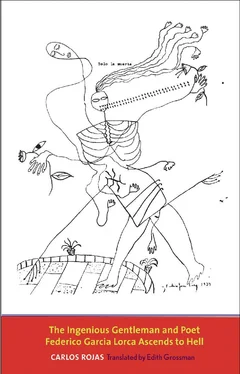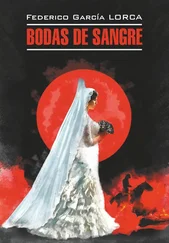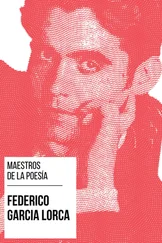“He replied that each person has a role in the great theater of the world and the parts in the play were indivisible and nontransferable.”
“Yes, yes, that’s what he said, as if I’d never read Calderón. I was assigned captivity, for this was the destiny imposed by my name. For having the name I had and being the man I was, I had to hide in his house when they wanted to kill me. Now, so many years later, my pride in being who I am keeps me from returning to a country that doesn’t deserve my presence. He was assigned a role different from and subordinate to mine in the farce. By means of inexplicable chance events, he became my guardian or, if you prefer, my jailer and confidant. He was no freer now to reveal my existence so I would be honored as a man come back to life than he was before I was denounced and condemned to be murdered.”
“But one way or another that situation had to end. Nothing is saved from the passage of time, not the stone in the air or the man on the ground. If such an absurdity still exists, it’s because it’s one of my hallucinations, just like you.”
The old man was only half listening, not granting any credit to his words, as he blinked uneasily beneath ashen eyebrows. He himself didn’t dare entirely believe what he had just said. (“Nothing is saved from the passage of time, not the stone in the air or the man on the ground. If such an absurdity still exists, it’s because it’s one of my hallucinations, just like you.”) Then he thought of that female patient of Charcot or the elder Huxley, the uncle or father of the novelist, whose case Luis Buñuel told him about before he happened to learn he had actually read it in Proust and in Sodome et Gomorrhe. ( La femme aura Gomorrhe et l’homme aura Sodome. ) A woman of the highest British society, who renounced all the receptions of her class, for as soon as her host would offer her a seat, she saw an ancient gentleman sitting there, refined and smiling, with a green frock coat and a lorgnette. Incapable of determining where the illusion lay, in the gesture that offered her the armchair or the formally dressed individual who occupied it, she turned to Huxley or Charcot to resolve her doubts. Supposedly cured, she went to a private concert to test herself. As soon as she was offered a seat in the first row, facing a very well-known soprano, the stranger with the lorgnette appeared to her again. Nonetheless, this time she controlled herself. She drew strength from her weakness and accepted the chair of carved Victorian mahogany, driving away forever the very urbane and distinguished phantom.
Unlike that lady of another time, he couldn’t decide whether he should or should not touch the hand or arm of his presumed parody, just as he hadn’t been able to decide that earlier. It was fitting that the usurper of his identity and even of his life snatched away by bullets would disappear at his touch, in precisely the way Charcot’s or Huxley’s patient finally had dispensed with her own ghost. It was also fitting that he himself would be the one to disappear then, if it was the truth (what sense would truth make in hell?) that he was the man’s dream. Surprisingly, that possibility of melting into interminable nothingness and sleeping with no memories or nightmares, beyond time and space, frightened him for the first time. It was still his absolute, most fervent desire finally to forget himself, but he didn’t want to achieve it by those means or through fear.
“That’s what Luis Rosales came to tell me,” the other man agreed, this time almost exulting. “In any case, he insisted, we ought to settle what was left unfinished. I think I’ve indicated to you my suspicion that after so many years he might want to be rid of me, at any price and by any means. Perhaps it would please him if that were possible, but naturally he wasn’t free to do it. ‘Luis,’ I said to him, ‘think back and remember the days when I taught you what an hendecasyllable was. Now it’s my duty to show you who and where we are. This is the second floor of your house, the house that belonged to your parents, but it’s also hell. The two of us are condemned to immortality, for reasons I don’t know and besides do not concern me. I’ll remain in these two rooms forever, and you’ll come to visit me occasionally across entire eternities, to repeat this conversation in identical terms or in others very similar.”’
“One of the rooms is the bedroom,” he interrupted on an impulse. “It has a single bed with legs and headboard of curved, very thin iron. The walls are white, though perhaps the years have darkened them, and the fringed bedspread is lemon yellow. The bedroom opens on to a kind of small sitting room that has a window with embroidered curtains that faces Calle de Angulo. It has a Pleyel piano, shelves that hold books from the Library of Spanish Authors and some wretched translations of Proust that Pablo Salinas was in charge of. I also recall a chest of drawers where Luis Rosales’s aunt perfumed the sheets with lowland quince. Above the chest and inside a lantern stands a Sacred Heart of Jesus with open arms.”
The old man listened with no great surprise, nodding at times and other times smiling. He seemed to congratulate himself for the detailed description, as if it were his. He wiped his glasses with a large handkerchief, in one of whose corners he saw the initials of his first and family names. Then he pretended to applaud.
“Well done, young man! Everything correct and as it should be! The kingdom of heaven must be made up of men like you. It doesn’t surprise me that you know my hell so well, since you’re one of my dreams. In a sense I could even say you’ll turn out to be me.”
“In a way,” he corroborated, fully conscious this time of his irony.
“Only in a way,” the old man tried to be specific. “If you were my age you’d be much wiser. I have to explain your destiny to you as I did to Luis Rosales, since yours is very similar to his. You’re chained to my dream, as he is to my wakefulness, and you’ll continue to appear on nights like this so I can talk to someone other than Luis and loneliness doesn’t drive me crazy. As you can see, youngster, the laws of hell are very judicious even though the legislators are invisible. Even assuming I wasn’t immortal, in which case Luis Rosales wouldn’t be either, you and I would turn out to be inseparable because when I’m dead I’d go on dreaming you for all of eternity.”
“You’ll disappear as soon as I touch your shoulder with the palm of my hand, because you’re not anyone. They killed me a long time ago and you’re only my false shade: the man I wouldn’t have wanted to be if surviving meant turning into someone so different from myself.”
“Are you sure they killed you, my boy?”
“I’m as certain of that as I am of our being in the true hell, the only one that exists.”
The apparition laughed again, but his laugh was different. Perhaps harder and less shrill. Without having grown any younger, and without ceasing to be himself, he was changing his appearance, like someone trying on various disguises on the cold eve of a carnival. His shoulders broadened and his spine straightened, until he had the bearing of man very advanced in years but more accustomed to moving through the world and clearing the way with his hands than in spending almost half a century in two rooms with a Sacred Heart of Jesus, a Pleyel, a single bed, the Library of Spanish Authors, and the translations of Don Pedro Salinas.
“You’re not sure of anything because life, death, even eternity itself are the fruits of infuriating chance. No destiny determines them because there’s no providence other than the one made and unmade by every one of us at each instant and in each step we take.”
Читать дальше












